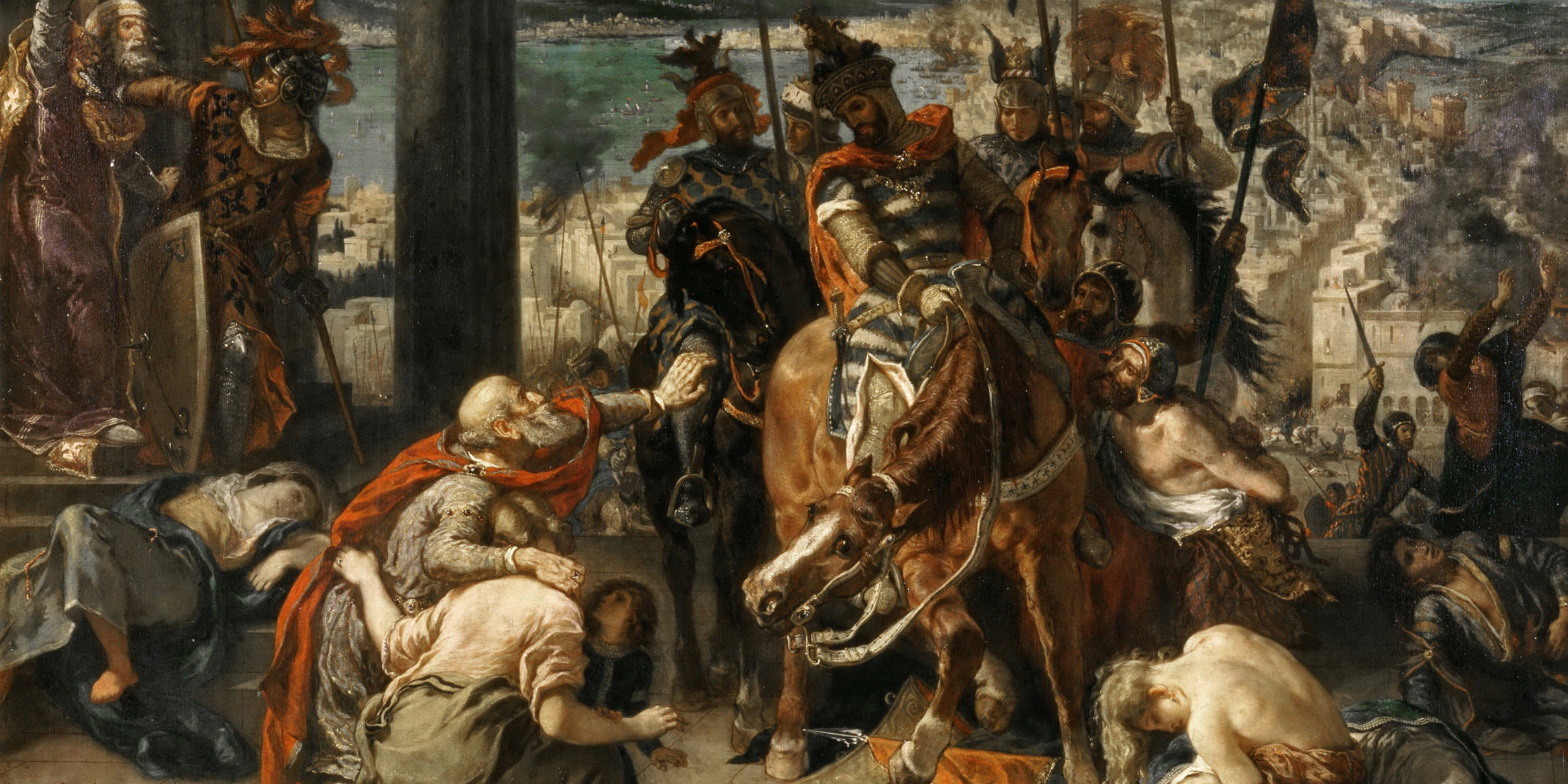Originally published 9 April 2002
Question: Who said, “Whenever [one] hears [our] religion abused, he should not attempt to defend its tenets, except with his sword, and that he should thrust into the scoundrel’s belly, as far as it will enter”?
Osama bin Laden? Mullah Omar?
The speaker was King Louis IX of France, a saint of the Roman Catholic Church, as remembered by his friend and biographer John de Joinville (recounted in Piers Paul Read’s The Templars).
Louis was one of many thousands of European Christians of the Middle Ages who took up the cross and sword to do battle with Islam. Holy war was preached in Europe with all the fervor of today’s Islamic jihad. To die in battle against the Moslem infidel assured the Crusader a place in paradise. If anything, Christians were more bloodthirsty in their righteousness than the Saracens they fought against.
Semi-monastic orders of Christian knights were established with the express purpose of slaughtering Muslims, in presumed obedience to Christ’s injunction in Matthew’s Gospel: “If anyone wants to be a follower of mine, let him renounce himself and take up his cross and follow me. For anyone who wants to save his life will lose it; but anyone who loses his life for my sake will find it.”
The rules of these medieval Christian military orders — the Templars, the Hospitallers — read like the rules of a Taliban training camp, right down to the prohibition against shaving beards. To adorn one’s clothes or even to wear shoelaces was deemed to partake of the decadent lifestyle of the enemy. The whole bloody enterprise was sustained by an unalterable conviction that God was on the Christian’s side.
While Christians and Moslems massacred each other in the names of their respective faiths, two activities rose above the religious strife.
Traders on both sides happily exploited the turmoil to make their fortunes. Merchants from Christian Genoa and Moslem Damascus had no qualms about exchanging goods for profit, even materials of war. Sugar, dyes, and spices went west; iron, timber, and furs traveled east.
And science.
As Christians fought Moslems in the Holy Lands and Spain, they came into contact with a kind of intellectual inquiry, now called science, that had been invented in the Eastern Mediterranean before either Christianity or Islam appeared on the scene. This new way of thinking made no reference to gods or miracles. It was founded on close observation of nature and mathematics.
The first great flowering of scientific thought was at Alexandria, at the mouths of the Nile, during the few centuries preceding the Christian era. Natural philosophers gathered at Alexandria from all over the Mediterranean world, and invented the kind of mathematics and astronomy we still practice today.
The great works that have come down to us from that time, such as Euclid’s Elements and Aristarchus’s On the Sizes and Distances of the Sun and Moon, make no reference to local culture or religion. Euclid’s theorems have a kind of truth that transcends personal opinion, and if anyone questioned Aristarchus’s measurements of angles in the sky, well, then they need only make the observations themselves.
No one in Alexandria, as far as I know, plunged a sword into anyone’s belly because of differences over the validity of the Pythagorean Theorem or the epicycles of Venus. The same remains true of science today. Although individual scientists can be rude and sometimes cheat, no one goes to war over differences of opinion. Scientists of all cultures and religions get along just fine, and the science we teach in the schools is the product of their consensus.
Science and mathematics were cultivated in the great Islamic centers of learning — Baghdad, Cairo, and Grenada — at a time when Europeans were mostly interested in bashing each other over the heads and rooting out heresy. Crusading knights were commonly illiterate. But literate camp followers brought scientific learning home from the East and sparked Europe’s Scientific Revolution and Enlightenment.
The last heretics and witches went to the stake or gallows about the time Galileo and Newton were convincing their contemporaries that there was a way to truth about the world that made no reference to revelation.
Why science and mathematics found their most fertile soil in the West, rather than, say, in China or Islam, is a question historians love to debate. The rise of the secular state in Europe and America certainly helped.
The founders of the the American nation were nominally Christians or Deists, but their commitment was to Enlightenment principles, and they were wise enough to disestablish religion and lay the basis for a system of secular public education. Some Christians in America, however, continue their efforts to make science serve religious faith in the public school curriculum, so far, thankfully, unsuccessfully.
For the present, Islam has surrendered its former precedence in science and mathematics in favor of religious triumphalism in nationhood and education. Americans who insist that ours is a “Christian nation” and who want science in the schools subverted by religion would have us go down the same historical dead end.



